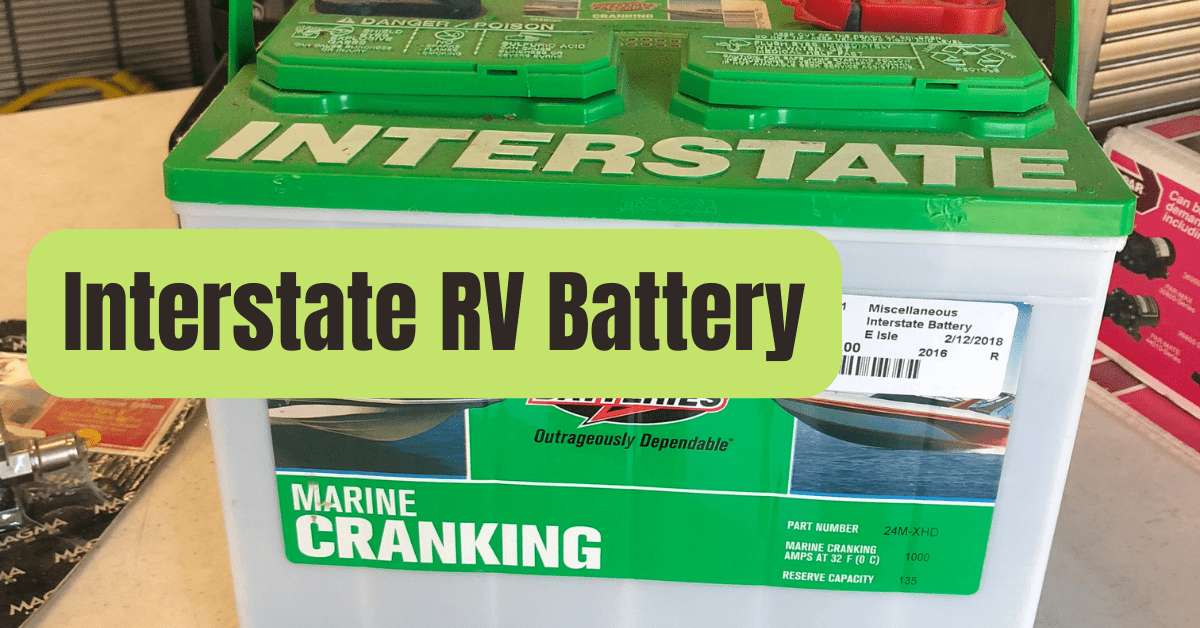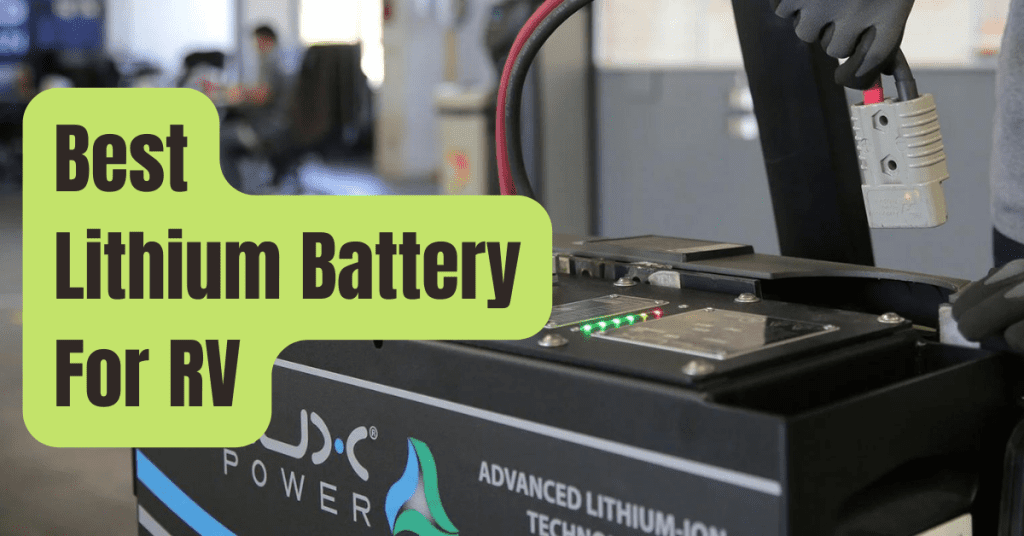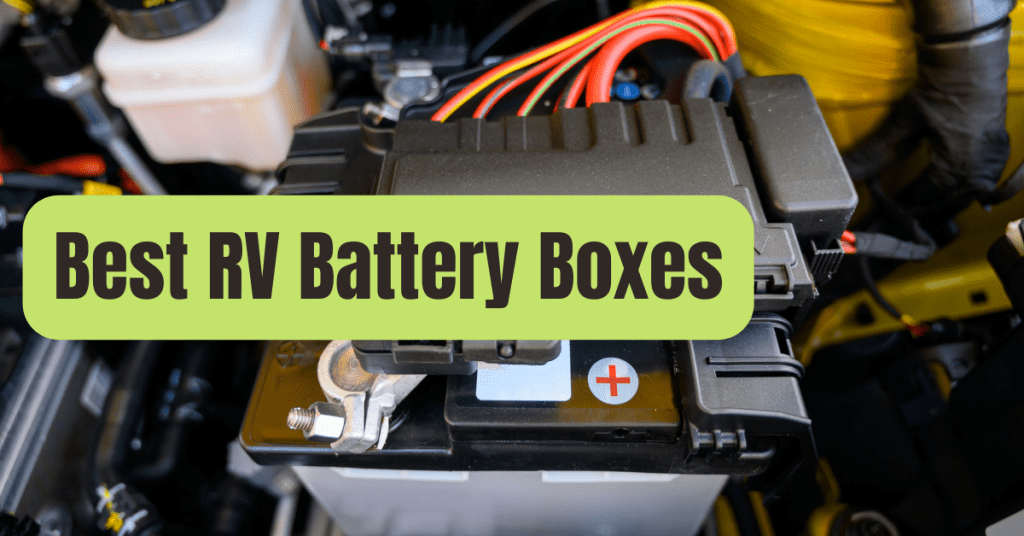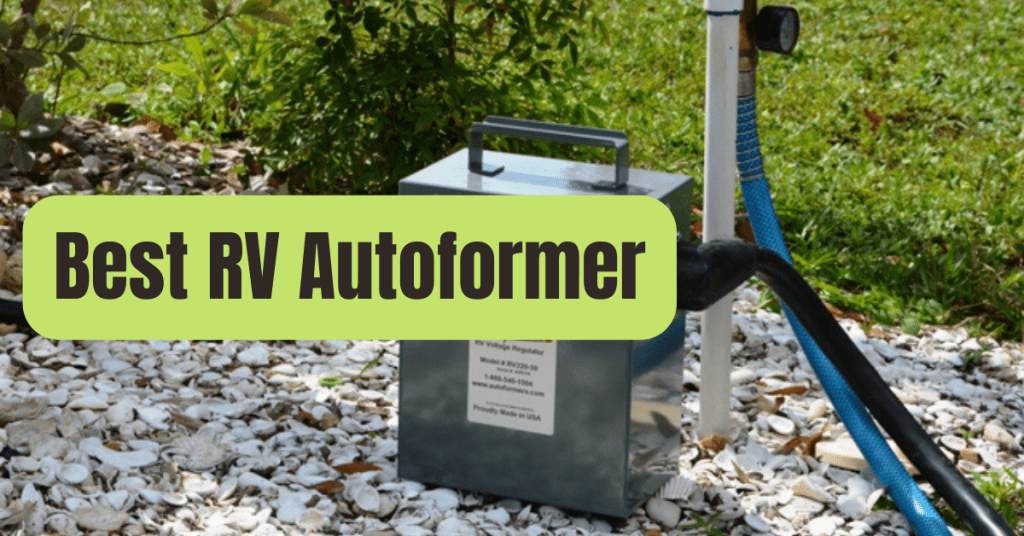Being able to plug in wherever you go is one of the major benefits of RVing.
However, a number of power sources, such as coach and chassis batteries, may be employed with RVs.
So how reliable are Interstate RV batteries?
What I discovered via trial and error is as follows:
RV batteries from Interstate are excellent.
Depending on the model bought, they have a countrywide warranty ranging from 1-3 years and last 7-8 years when maintained correctly.
They have deep cycle batteries that can withstand greater discharge rates than standard batteries.
There is more information regarding Interstate Batteries than just that.
Therefore, we’ll go more into their lifespan, the definition of a deep cycle battery, their manufacturing location, and if they’re the greatest RV battery money can buy in this post.
Continue reading!
How Durable Are Interstate RV Batteries?
Interstate RV batteries are expected to endure for at least five years.
And if they are properly maintained, they may survive much longer.
Deep cycle batteries, which are often used in RVs, should have their water checked every 4-6 weeks and filled out as necessary with distilled or deionized water.
This is in contrast to current automobile batteries.
Generally speaking, a battery’s lifetime decreases with increased depth of drain.
However, compared to starter or vehicle batteries, deep cycle batteries are built to withstand greater discharge rates.
Your motorhome’s starting battery, often known as an auto battery, is located there.
Before being recharged, deep cycle batteries need to be drained to a depth of 20 to 50 percent.
Don’t recharge them too quickly, but be sure you charge them at the end of the day.
This will result in an early failure.
Naturally, the majority of us don’t consider charging our RV batteries.
But do not fret.
You will be automatically recharging your batteries if you run a generator while driving and connect to shore power every night or at least a few times each week.
In the 69 years that Interstate Batteries has been in operation, the BBB has received 12 complaints.
That’s a great track record, I assure you!
One of them addressed a concern about RV batteries that failed only a year after purchase.
This grievance was filed in May 2019.
Interstate provided the customer a complete battery refund.
On the BBB website, they have an overall rating of A+.
You are aware that motorhomes have two distinct battery systems since you own an RV.
The “house” or “coach” batteries provide 12-volt DC energy to run devices like the interior lights.
The engine is started by using the chassis battery, which also powers the lights and wipers on the car.
Check out our new post to learn more about the variations between coach and chassis batteries.
To read it on my website, just click the link.
What Does It Imply That A Deep Cycle Interstate RV Battery Is?
Deep cycle batteries are designed to be frequently discharged and recharged.
In an RV, electricity is sometimes utilized even when the house batteries may not be being recharged.
In a moving vehicle, the battery is continually recharged.
Deep cycle batteries vary from standard batteries in many ways.
Shorter electrical bursts are produced by standard automobile batteries.
Then, a motor, such as a vehicle engine, is “cranked” started using these energy bursts.
An alternator is a common feature of motors, and it recharges the battery.
The plates of regular automobile batteries are thinner and have a bigger surface area.
This enables them to generate a stronger electrical charge more quickly.
The sprinters of the battery world, they are.
They generate a lot of electricity in a little period of time.
They just need it briefly, much as when starting an automobile.
Deep cycle batteries provide continuous, minimally powerful, but reliable power.
This power is enough to drive a vehicle without a motor.
They need frequent recharging.
In deep cycle batteries, the metallic components are thicker.
The battery can deliver power more regularly thanks to thicker metal panels.
Consider them the marathoners of the battery industry.
They have a smaller quantity of power over extended periods of time as opposed to quick bursts of high power.
And as I already indicated, unlike the majority of today’s automobile batteries, deep cycle batteries do sometimes need to have their water levels checked and filled up.
As a result, schedule water checks every 4-6 weeks.
Top it off if it seems to be low.
However, only use deionized or distilled water.
Never fill a battery with spring or tap water.
This is due to the possibility that the water includes significant amounts of minerals that might damage the battery.
All RV Batteries Are Deep Cycle, Right?
Due to the way that RVs utilize and recharge their house batteries, all RV house batteries will undergo extensive cycling.
They must be able to operate for extended periods of time without necessarily needing to be recharged at the same time.
In RVs, the chassis battery used to start the engine is not a deep cycle battery.
While deep cycle batteries are common to all RV house batteries, they are not all created equal.
Lead-acid flooded batteries are the most fundamental kind of RV battery.
They are the cheapest and have been in existence for more than a century!
They need to be maintained often.
They should be routinely cleaned, and distilled water should be added.
If your batteries are kept inside your RV, it may be harmful since they are prone to producing poisonous vapors.
For occasional campers who don’t often cycle the battery, flooded lead-acid batteries are perfect.
In contrast to flooded lead-acid batteries, gel batteries include silica in the electrolyte, which results in a gel.
You don’t need to add water, and off-gassing is not a concern.
The battery might suffer serious harm if it is overcharged.
To avoid overcharging, keep a watch on it or use a smart charging device.
Batteries made of absorbed glass mat (AGM) are comparable to gel and lead-acid batteries in terms of technology, but they don’t need to be maintained.
Off-gassing is not a concern, and they may be kept in storage for a longer period of time.
Additionally, they function better throughout deep cycles and have more capacity.
They cost more money and have a shorter lifespan, however.
The most costly batteries are lithium-ion ones.
In addition, they are lower in weight, have the deepest depth of discharge, and have the longest lifetime.
Does China Produce Interstate Batteries?
China is not where Interstate Batteries are produced.
They have multiple facilities spread out over North America and are produced in both the US and Mexico.
However, 98 percent of their batteries are produced here.
The production of Interstate Battery’s batteries is outsourced to local battery producers.
The weight of the batteries, the high cost of transportation, and shipping laws for hazardous materials are the main causes of this.
While most batteries are produced in the US, some are also produced in Mexico.
Mexico has a legislation requiring the labeling of batteries.
Therefore, an Interstate battery that doesn’t have a tag on it is built in the USA.
Interstate offers batteries that are created in the USA in around 98 percent of cases.
Batteries for small engines and lawn mowers are included in this.
the power sport batteries being the exception (motorcycles, jet skis, ATVs, etc.).
Who Manufactures The Finest Batteries for RVs?
The finest deep cycle battery for RV house batteries is made by Amper Time and is made of lithium iron.
Although they are among the most costly RV batteries, they offer higher performance, a longer lifespan, and need no maintenance.
The majority of the roughly 1,000 ratings for that one are five stars.
It is substantially lighter than a lead acid battery of the same capacity, weighing less than 50 pounds.
It has a 5-year guarantee and a 10-year battery life claim.
You don’t need to worry about any hazardous or explosive vapors, and it requires no maintenance.
In contrast to lead-acid batteries, which have a lifespan of 200–500 cycles, they endure 2,000–5,000 cycles.
They are also almost unbreakable.
You don’t need to be concerned about overcharging or running out of water harming the battery.
Batteries made of lithium iron phosphate won’t overheat and won’t catch fire even if they are punctured.
They often live for between five and seven years.
It is debatable whether or not this battery has a low-temperature cutoff.
It does, according to some reviewers, but it doesn’t, according to others.
Therefore, you may wish to test it before using it in the outdoors if you plan to travel in an exceptionally cold region.
RV Batteries: Important Information.
Did I Cover All The Questions You Had About The Reliability Of Interstate RV Batteries?
Your RV battery will last the longest if you let it go down to 20 to 50 percent before recharging.
Deep cycle batteries will be used for all of your RV’s house batteries.
However, you are free to choose the kind of deep cycle battery you want.
Most Interstate batteries are produced in the United States.
However, there won’t be a tag on it indicating as such.
If it was created anywhere else, it would have a sticker.
Are you planning to use Interstate Batteries instead?










